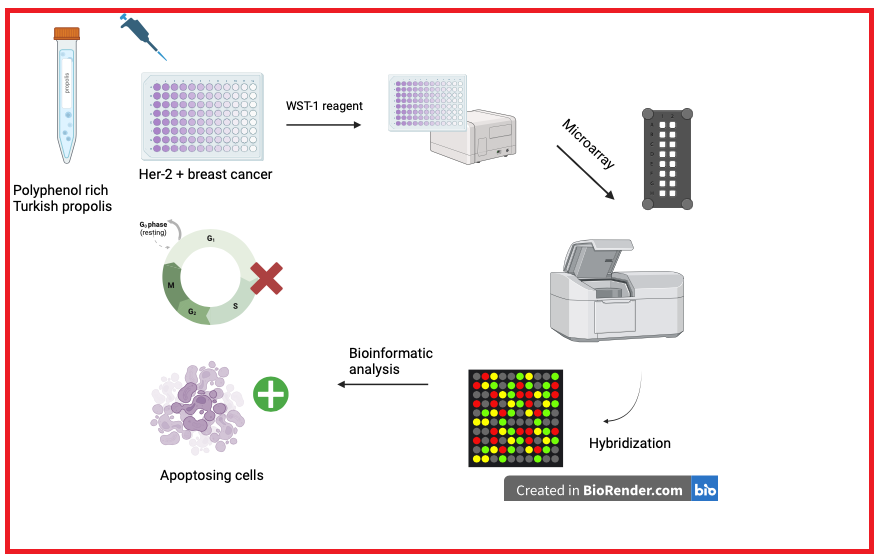JOURNAL 2947
Records of Natural Products
Year: 2024 Issue: 2 March-April
p.201 - 211
Viewed 2180 times.
-
Mehmet Fatih Seyhan

-
Ozlem Timirci-Kahraman

-
Allison Pinar Eronat

-
Eren Yilmaz

-
Ayse Begum Ceviz

-
Halil Ibrahim Kisakesen

-
Tulin Ozturk

-
Hulya Yilmaz-Aydogan

-
Oguz Ozturk

GRAPHICAL ABSTRACT

ABSTRACT
Natural products have been focused by researchers due to their important anticarcinogenic characteristics in the treatment of cancer with the slightest side effects possible. Propolis is one of the most prominent candidates among these natural products in terms of its anticancer features. In this study we aim to research the effects of Anatolian propolis on ER/PR-, HER-2/neu+ human breast cancer cell line SK-BR-3 with intent to clarify the molecular mechanism propolis in HER+ breast cancers in overview of whole genomic expression for the first time via a microarray experiment. Afterwards, microarray data was validated via real time PCR with the selected genes. After performing bioinformatic analysis via GeneSpring Software and String analysis, a 50 µg/mL dose of propolis affected several pathways of HER-2 positive breast cancer cells including cell cycle, DNA repair and apoptosis especially at 48th hour exposure. In contrast, after exposure to 50 µg/mL dose of propolis, up-regulated genes were detected at diverse pathways such as immune response, cell migration regulation, organization of cell-cell adhesion, etc. For this reason, we proposed that polyphenol-rich propolis can be used in the treatment of HER-2 positive breast cancer with characteristics of less toxic than the current treatment methods
KEYWORDS- Breast cancer
- HER-2
- microarray
- flavonoids
- bioinformatics